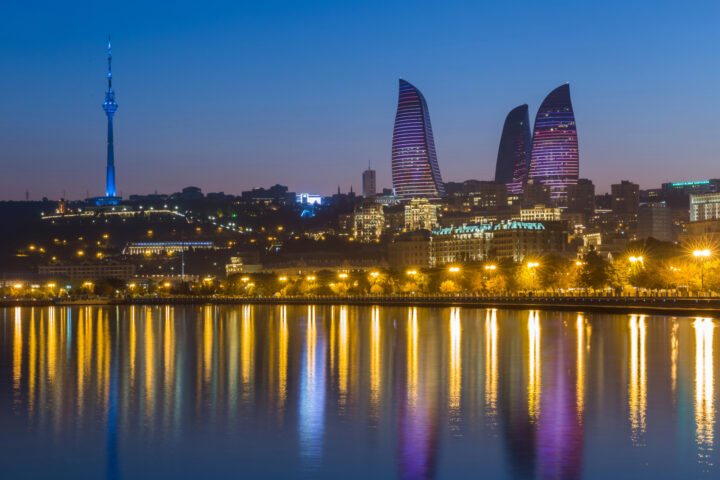Why a Trump presidency won’t derail the world’s climate ambitions
Donald Trump, who has referred to climate change as a ‘hoax’, will hold arguably the most powerful position on the planet from January, making decisions with global ramifications.

By Gareth Redmond-King
@gredmond76Share
Last updated:
Trump will lead the world’s second largest greenhouse gas emitter and when he gets into the White House he promises to “Drill, drill, drill.” He’s withdrawn the United States from the Paris Agreement before and vows to do so again. So, will his presidency derail the clean energy transition, stifle efforts for net zero and guarantee the world overshoots 1.5°C of warming?
The American transition to renewables is well underway and gathering pace, bringing significant economic gains, jobs and income. Outgoing President Joe Biden’s team boosted the net zero economy in red states, targeting areas of industrial decline and creating a clean energy boom in places like Texas – the biggest US supplier of wind power. But even before that, Trump’s last four years in office, from 2016-2020, didn’t mark a slowdown in the deployment of renewables; the opposite happened, and momentum built.
Will he undo IRA?
Biden’s Inflation Reduction Act may ultimately channel $1 trillion US into green energy. And 85% of the project money has been injected into Republican districts, according to one analysis. These projects bring 109,278 jobs, mostly in manufacturing. If Trump sought to dismantle IRA, he could face a backlash from governors, as well as federal and congressional representatives, in states benefiting from this new prosperity. It would be politically costly.
During the last Trump presidency in 2016, clean energy investments first began to outpace oil and gas, and money flowing to wind and solar is now double that of fossil fuels. The IEA predicts fossil fuel demand will peak before 2030, so the risk of stranded assets is real.
Meanwhile, China is spearheading a renewables revolution and is on track to account for 60% of clean energy capacity by 2030. And the European Union and the US have been competing to court investment in the energy sources of the future – cutting their emissions 8% over the last year as a result. Bowing out of the clean tech race now would leave America behind, weakened and less energy secure.
Britain’s net zero industries added a staggering £74 billion to the economy last year. An American retreat from IRA could leave investors looking for other opportunities, including in the UK.

What does it mean for COP29?
At COP29 in Baku, starting on 11 November, the mood may be more sombre. Even before he takes up office, a second Trump term could overshadow discussions. But now, as last time, offers an opportunity for other countries to step in and lead the way. The EU, UK, most of the G7, the G20 and Brazil have recently restated their commitments to climate action.
Trump has said he will withdraw once again from the Paris Agreement. Last time it took four years to pull out and lasted just months before Biden re-entered the treaty, this time it could only take a year. He may even disengage from the whole UNFCCC framework underpinning action on climate change, though experts say this will be far harder. But his top-level statements and provocations could make little difference to action on the ground. When Trump unilaterally left the agreement last time (with no other country following), nearly 4,000 American leaders – governors, mayors, CEOs – pledged to mobilise across the 50 states to hold strong. We Are Still In represents almost 160 million people and totals 9.46 billion in GDP and promises to halve emissions by 2030, reach net zero by 2050.
There is serious work to do this year and again at COP30 in Belem, Brazil, in 2025, at which new Nationally Determined Contributions (NDCs) are due. These are each country’s pledges on emissions and adaptation. Current NDCs put the world on track for a catastrophic 2.6-3.1°C of warming. Every nation will need to step up and make a difference, regardless of who’s at the helm in America. And in Britain, one of the world’s biggest historical emitters, the electorate overwhelmingly supports clean energy to tackle climate change, including 80% of Conservative and two-thirds of Reform voters. And an overwhelming majority of Britons don’t want a Trump presidency to water down climate targets. Any backtracking from America only offers up an opportunity for others to lead the way.
What about extreme weather in the US?
Trump, up in his New York tower, may deride climate science. But as damage wreaked by a warming planet accelerates, it’s going to be harder to ignore from his Florida beach-side resort.
America is on the frontlines of climate change with annual wildfires, heatwaves and hurricanes. Those facing extreme weather may well grow frustrated with a president who denies the cause. Pulling out of climate change agreements won’t protect Americans from its impacts. Many voters will want action – preparing for a worsening climate, while investing in cleaner energy.
Work will go on
Progress to net zero is likely to be slower under a Trump presidency than it would have been if Kamala Harris had been America’s choice. But Trump promises to be the man to boost the economy and Biden’s investments in renewables are creating jobs and opportunities. There could be a backlash if Trump puts ideology over profit. Should he choose the path of denialism, the world will have no choice but to do what it did last time: carry on without him. But this time it will have double the renewables generating capacity as before.